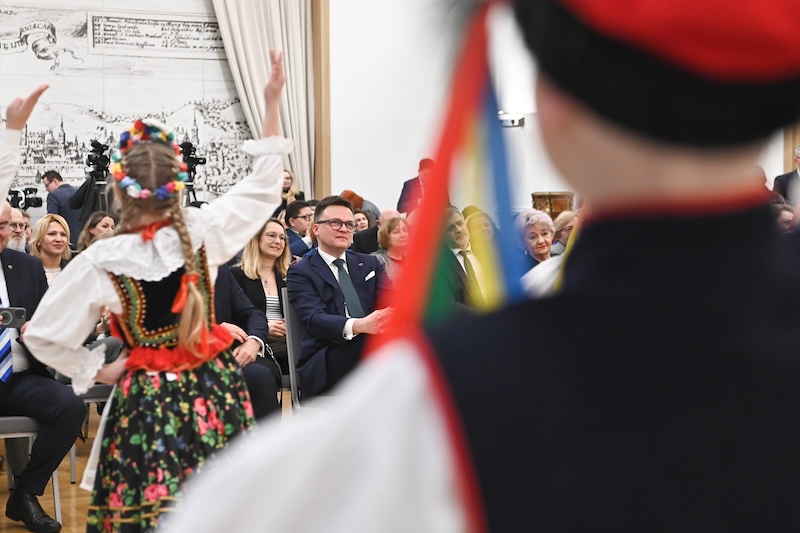Poland and Lithuania may be allies on paper, but like many nations in Central and Eastern Europe, disputes continue over ethnic minorities and their right to use their language and control how towns and public squares are named.
During his visit to Lithuania, the speaker of the Polish parliament, Szymon Hołownia, met with the Lithuanian President Gitanas Nauseda and the speaker of the Lithuanian parliament, Viktorija Cmilyte-Nielsen, with whom he discussed defense and security matters. One of the main topics of conversation was the rights of the Polish minority in Lithuania.
He highlighted the need to guarantee Poles in Lithuania the right to have their Christian names and surnames in the original Polish language format in public documents, arguing that “in times of peace this can be debated, but today there is a need for Lithuania to show goodwill when both countries need to work with each other on security.”
Hołownia promised that Poland would not rest until full language, education and election districting rights were respected by the Lithuanian side. The question of boundaries of constituencies is important for Poles to ensure they maintain representation in Lithuanian elected bodies.
It was Hołownia’s first foreign visit since taking office, and he also took time to meet with the Polish minority in Lithuania who have in the past been engaged in disputes with the Lithuanian authorities about Polish schools and about the use of Polish names for public places and in public documents.
The Polish minority also has its own candidate lists in the Lithuanian parliamentary and local elections, and Hołownia met with these and other politicians of Polish origin in other parties.
During the meeting with the Polish minority, Hołownia said that “not all the interests of the Polish community have been guaranteed in Lithuania” and he appealed to the Lithuanian authorities to take action on outstanding issues.
One of the Polish MPs to the Lithuanian parliament observed that Poles were not chosen as chiefs of electoral district committees and that the redistricting of constituencies was done in such a way as to dilute the Polish ethnic electorate.
Since Lithuania regained independence in the 1990s, until 2022, the recording of Christian and surnames in Lithuanian documents could only be done using the official Lithuanian alphabet and had to be in accordance with Lithuanian grammar concerning name endings.
This distorted not only the visual but also phonetic sound of the names of local Poles. In 2022 a move was made towards allowing original Polish names to be used with the use of symbols specific to the Polish language.





